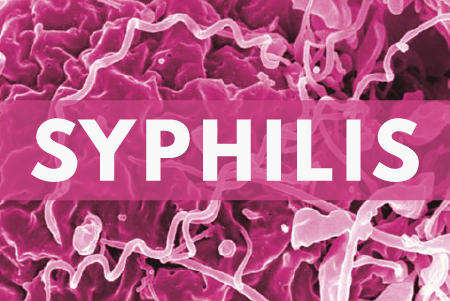Syphilis is a sexually-transmitted bacterial disease caused by bacterium Treponema pallidum subspecies pallidum. The basic transmission mechanism is through vaginal, anal and/or oral sex. Syphilis may also be transmitted through needle sharing, blood transfusion, accidental inoculation, or organ transplantation.
In this final episode of our series on syphilis and public health, we hear from Dr. Jared Bullard, a pediatric infectious disease specialist at the University of Manitoba and Children’s Hospital in Winnipeg. He discusses recent increases in cases of congenital syphilis, the risks it poses to a fetus, as well as prevention strategies.
In this podcast, Dr. Marcia Anderson, a medical officer of health and medical lead for the Winnipeg Regional Health Authority, discusses the determinants of syphilis transmission in Indigenous women and what public health and primary care providers can learn to slow or stop the progression of syphilis within this community.
In this podcast, Laverne Gervais, program coordinator at Ka Ni Kanichihk and a Sexual Health Educator, discusses the determinants of syphilis transmission in Indigenous women and what public health and primary care providers can learn to slow or stop the progression of syphilis within this community.
Case study on the application of mathematical modelling to assess the impact of a newly-designed intervention on the burden of syphilis in Winnipeg, Manitoba.
Their story illustrates how mathematical modelling can provide timely evidence to guide decision-making by public health planners and practitioners throughout the implementation of a new intervention.
The lessons they share may help to demystify modelling and reveal the benefits of collaborations between modellers and public health personnel.
Montréal, 22–23 November 2016 Date: November 22-23, 2017Montréal, Canada Description Syphilis has re-emerged in Canada during the last decade with epidemics now rooted in both urban and rural settings. While gay men are still at the centre of the urban epidemics, there is now a transition in the epidemiological pattern with increasing numbers of cases…
In support of renewed public health efforts to control the recent outbreaks of syphilis in Canadian cities, NCCID brought together public health practitioners from several health regions, community-based organizations, and researchers September 29-30, 2014 in Winnipeg Manitoba
Information exchange event focused on urban syphilis and men who have sex with men (MSM), hosted by the NCCID in September 2014. The purpose was to share information across sectors and jurisdictions about outbreaks of syphilis affecting MSM in several cities across Canada.
A brief summary of grey literature and published research on the effectiveness of interventions for syphilis epidemics among men who have sex with men.

